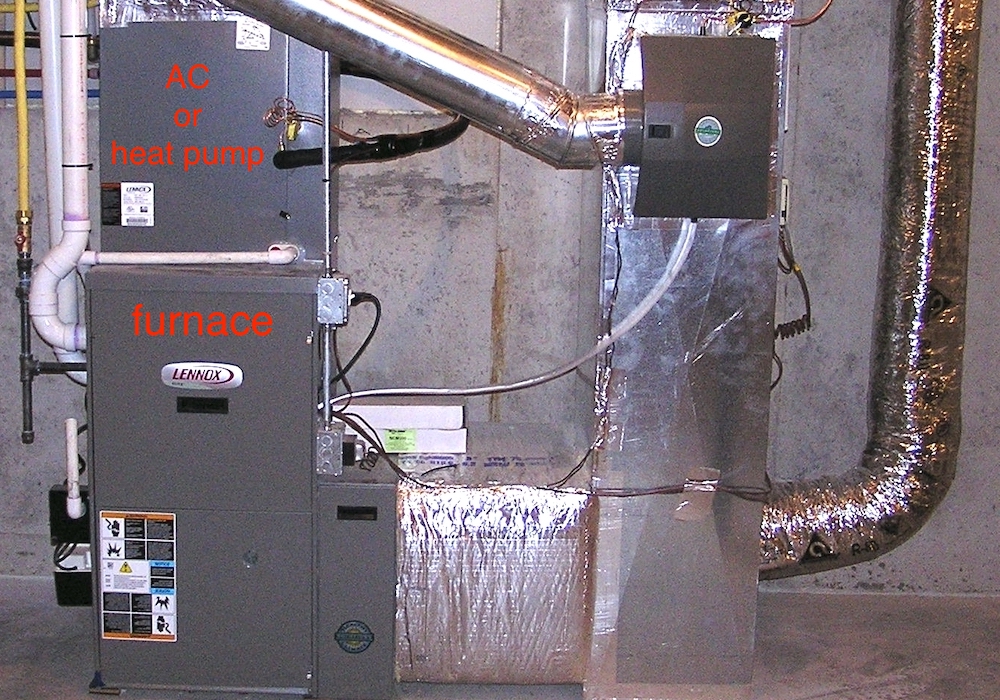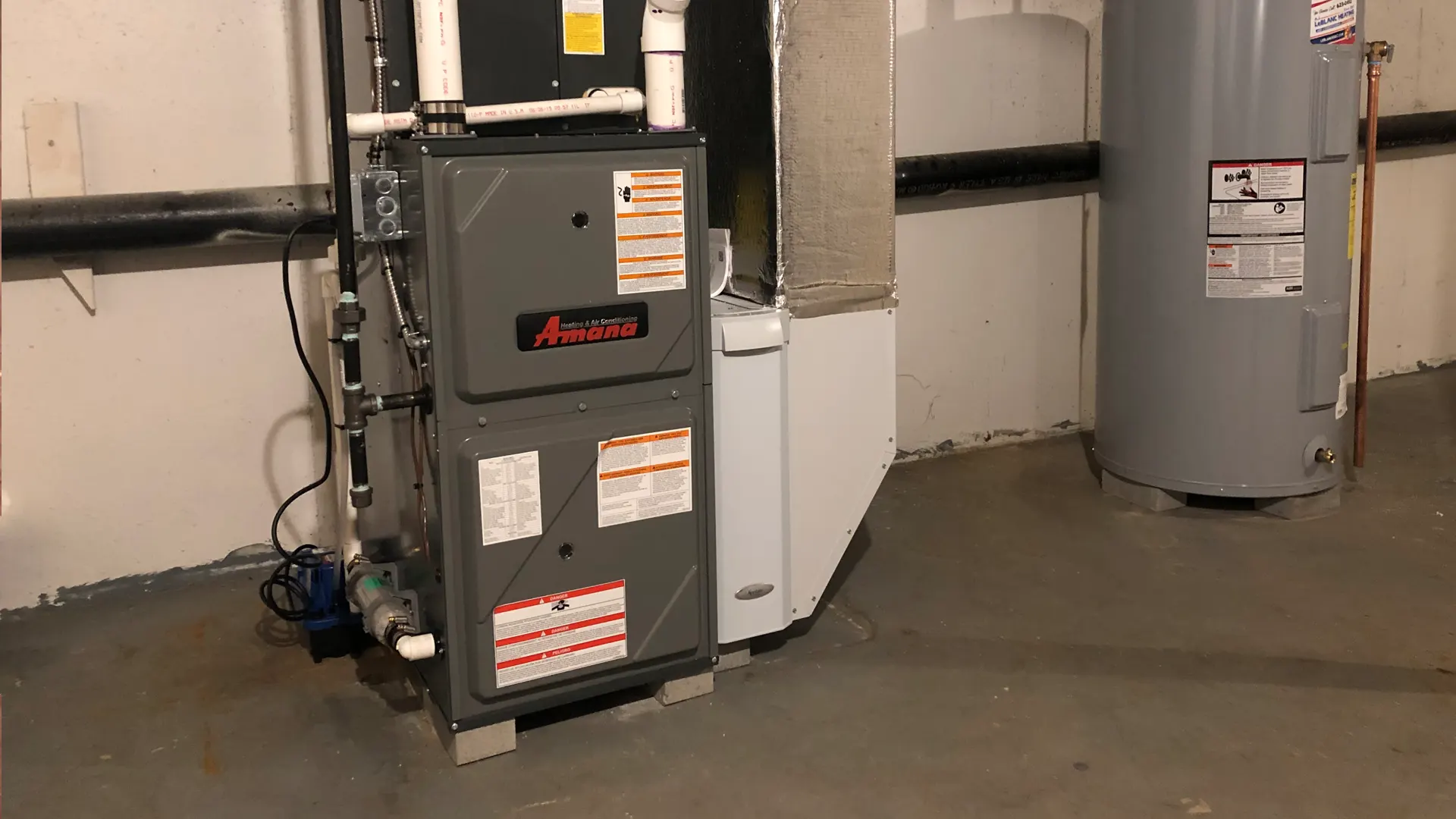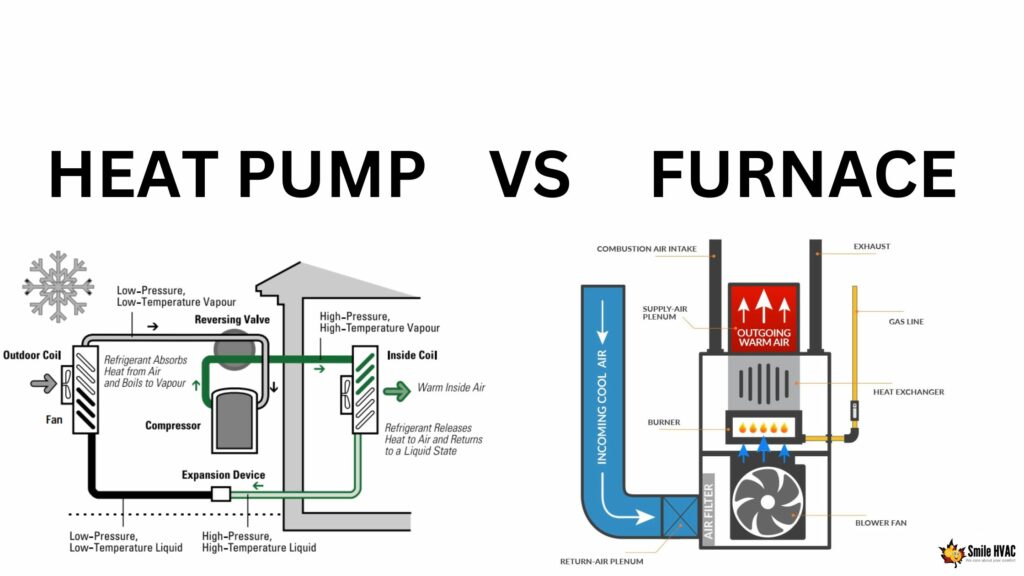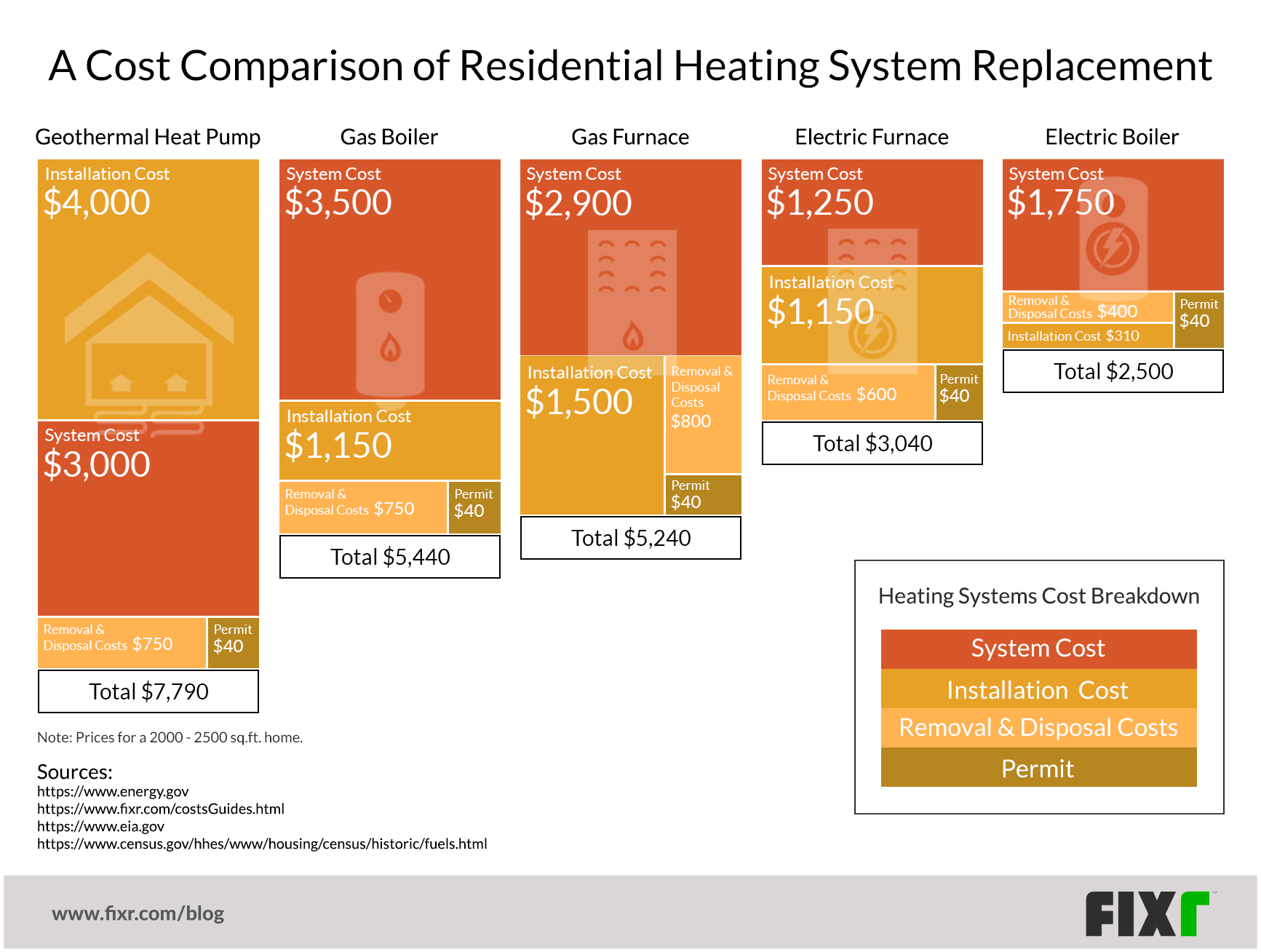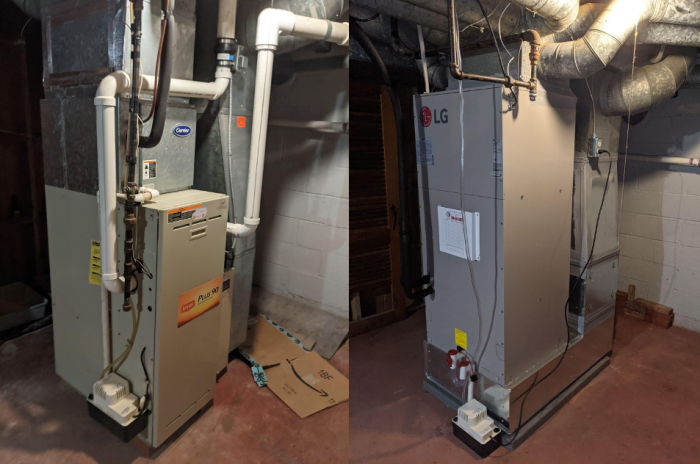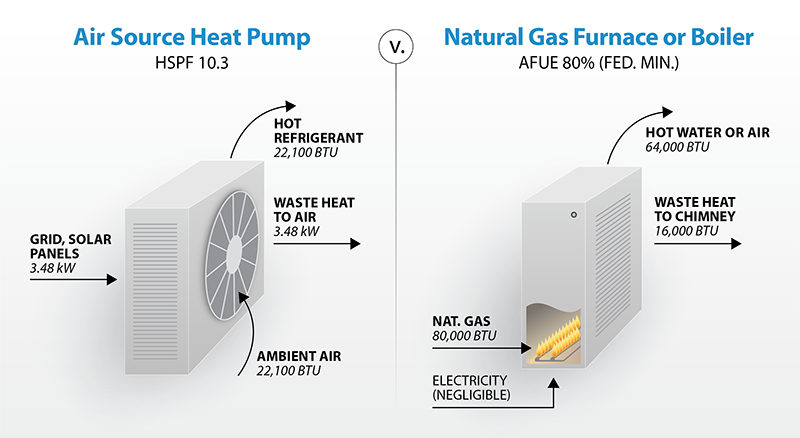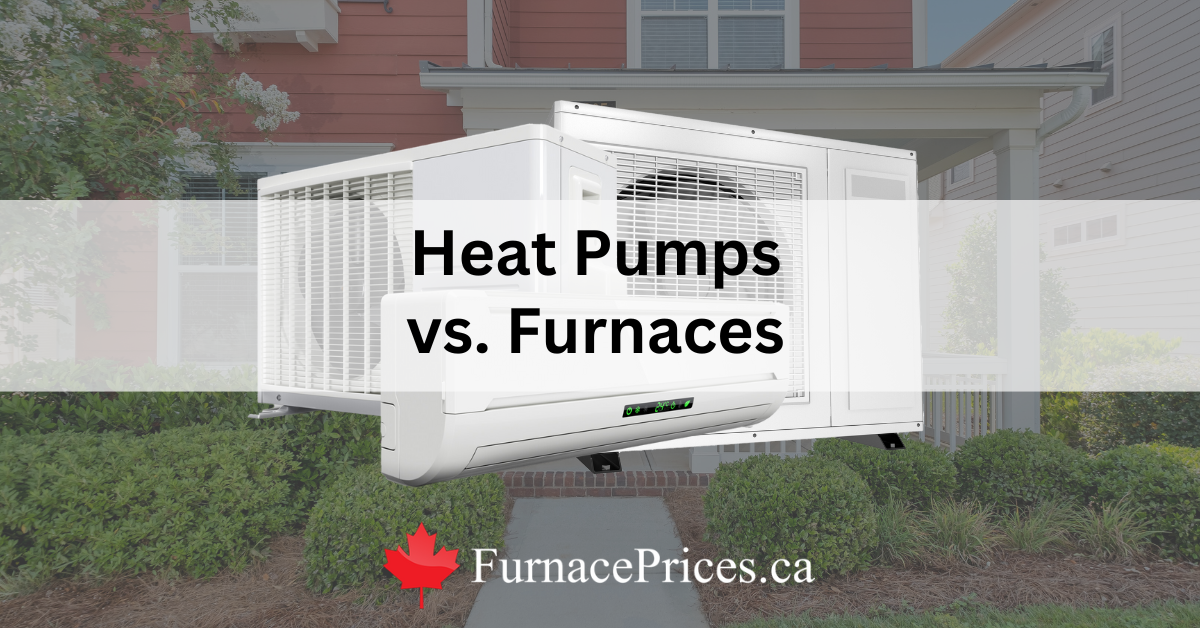Cost To Convert Gas Furnace To Heat Pump

Converting from Gas Furnace to Heat Pump: A Homeowner's Guide to Cost and Considerations
If you're considering switching from a gas furnace to a heat pump, you're likely weighing the pros and cons of efficiency, environmental impact, and, of course, cost. This guide breaks down the expenses involved and what to consider before making the leap.
Understanding the Basics
Before diving into costs, it’s essential to understand what a heat pump is and how it differs from a gas furnace. A gas furnace generates heat by burning natural gas. A heat pump, on the other hand, transfers heat. In the winter, it extracts heat from the outside air (even when it's cold!) and moves it inside. In the summer, it reverses the process, acting as an air conditioner by removing heat from your home and transferring it outside.
This transfer process makes heat pumps incredibly efficient, especially in moderate climates. However, in extremely cold climates, their efficiency can decrease, potentially requiring supplemental heating.
Estimating the Cost: A Detailed Breakdown
The cost to convert from a gas furnace to a heat pump can vary significantly based on several factors. Here's a detailed breakdown of the potential expenses:
1. The Heat Pump Unit
The heat pump itself is the most significant expense. Prices vary based on:
- Size (BTU Rating): Larger homes require more powerful heat pumps.
- Efficiency (SEER & HSPF): Higher Seasonal Energy Efficiency Ratio (SEER) for cooling and Heating Seasonal Performance Factor (HSPF) for heating indicate better efficiency, but also higher upfront costs.
- Brand: Established brands like Carrier, Trane, and Lennox often command premium prices.
- Features: Variable-speed compressors, smart home integration, and zoning capabilities add to the cost.
Cost Range: $4,000 - $12,000 (unit only)
2. Installation Costs
Installation involves more than just plugging in the new unit. It typically includes:
- Removal of the Old Furnace: This may involve disconnecting gas lines (SAFETY WARNING: always call a qualified professional for gas line work!) and safely disposing of the furnace.
- Electrical Work: Heat pumps require a dedicated electrical circuit. Upgrading your electrical panel may be necessary.
- Ductwork Modifications: Existing ductwork may need to be modified or replaced to ensure proper airflow for the heat pump.
- Refrigerant Lines: Installing new refrigerant lines connecting the indoor and outdoor units.
- Condensate Drain: Connecting a drain line for condensation removal.
- Permits and Inspections: Local building codes often require permits and inspections for HVAC installations.
Cost Range: $1,500 - $5,000
3. Additional Costs to Consider
- Backup Heating System: In colder climates, you might need a supplemental heating system, such as electric resistance heat strips, to assist the heat pump during extremely cold periods. This adds to the initial cost and increases electricity usage during those times.
- Thermostat: You'll likely need a new thermostat compatible with heat pump systems. Smart thermostats offer enhanced control and energy savings.
- Insulation: Ensuring your home is properly insulated is crucial for maximizing the efficiency of your heat pump. Adding insulation can significantly reduce heating and cooling costs.
- Duct Sealing: Leaky ductwork can waste a significant amount of energy. Sealing your ducts can improve the efficiency of your HVAC system.
4. Potential Rebates and Incentives
Don't forget to research available rebates and incentives. Many utility companies and government agencies offer rebates for installing energy-efficient heat pumps. These incentives can significantly reduce the overall cost.
DIY vs. Professional Installation: What You Need to Know
While some DIYers might be tempted to tackle the installation themselves, it's generally recommended to hire a qualified HVAC professional. Here's why:
When to Call a Pro:
- Refrigerant Handling: Working with refrigerants requires specialized equipment and training. Improper handling can be dangerous and illegal.
- Electrical Work: Working with electrical wiring can be hazardous. Improper wiring can lead to fires or electrocution.
- Gas Line Disconnection: Disconnecting gas lines should only be done by a licensed professional.
- System Sizing: Correctly sizing the heat pump is crucial for optimal performance. Professionals can perform load calculations to determine the appropriate size for your home.
- Warranty: Many heat pump manufacturers require professional installation for the warranty to be valid.
DIY Tasks (With Caution):
There are a few tasks that a skilled DIYer might be able to handle, but only with caution and proper research:
- Removing the Old Furnace (After Professional Disconnection): Once a professional has safely disconnected the gas and electrical lines, you *might* be able to remove the old furnace yourself.
- Installing a New Thermostat: If you're comfortable working with low-voltage wiring, you can install a new thermostat. Always turn off the power before working on electrical components.
- Sealing Ductwork: You can seal ductwork using mastic sealant or foil tape.
- Adding Insulation: Adding insulation to your attic or walls can improve energy efficiency.
SAFETY FIRST: Always prioritize safety when working on any HVAC system. If you're unsure about any step, consult a professional.
Troubleshooting Common Heat Pump Issues
Even with professional installation, heat pumps can sometimes experience issues. Here are some common problems and potential solutions:
- Heat Pump Not Heating or Cooling: Check the thermostat settings, air filter, and outdoor unit for obstructions.
- Ice Buildup on Outdoor Unit: Some ice buildup is normal, but excessive ice can indicate a problem. Try running the system in defrost mode.
- Strange Noises: Unusual noises can indicate a mechanical problem. Contact a professional for diagnosis and repair.
- High Energy Bills: High energy bills can indicate an inefficient system or a problem with the unit. Schedule a maintenance check.
Regular Maintenance is Key: Schedule annual maintenance checks to ensure your heat pump is running efficiently and to prevent costly repairs.
Tools You Might Need (For DIY Tasks):
- Screwdrivers (various sizes)
- Wrenches
- Pliers
- Wire strippers
- Multimeter
- Duct tape or mastic sealant
- Insulation
- Safety glasses
- Gloves
- Level
Parts You Might Need (For Minor Repairs):
- Air filters
- Thermostat
- Fuses
- Contactors
- Capacitors
WARNING: Replacing electrical components should only be done by experienced DIYers who are comfortable working with electricity. Always disconnect the power before working on electrical components.
Making the Decision: Is a Heat Pump Right for You?
Converting from a gas furnace to a heat pump is a significant investment. Consider these factors to determine if it's the right choice for your home:
- Climate: Heat pumps are most efficient in moderate climates. In extremely cold climates, a backup heating system may be necessary.
- Home Insulation: Proper insulation is crucial for maximizing the efficiency of a heat pump.
- Energy Costs: Compare the cost of natural gas to the cost of electricity in your area.
- Environmental Concerns: Heat pumps are more environmentally friendly than gas furnaces because they don't burn fossil fuels.
- Long-Term Savings: While the initial cost of a heat pump may be higher, it can save you money on energy bills in the long run.
Get quotes from several HVAC contractors to compare prices and services. Ask about rebates and incentives, and make sure the contractor is licensed and insured.
By carefully considering the costs and benefits, you can make an informed decision about whether converting from a gas furnace to a heat pump is the right choice for your home.
